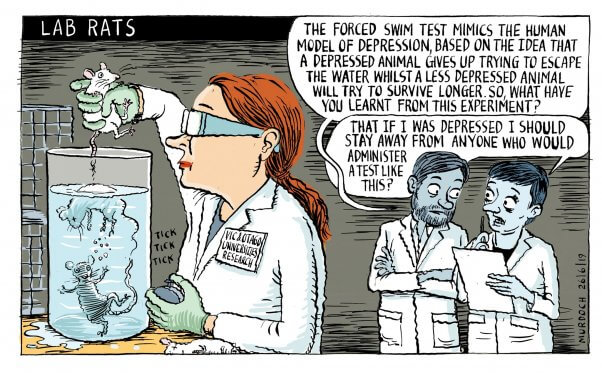Victory! Top 10 Pharma Company Roche Bans Forced Swim Test
Put another mark in the “win” column for animals! After hearing from PETA, PETA Switzerland, and PETA Germany, pharmaceutical giant Roche Pharmaceuticals has just said that it’s ending its use of the near-drowning test on mice and other small animals. Roche joins fellow top 10 pharma companies Johnson & Johnson and AbbVie as well as others in banning the abusive forced swim test.
Between 2001 and 2018, Roche published at least 11 papers that describe its use of the forced swim test in experiments involving more than 800 mice and rats. Experimenters in laboratories where these tests are conducted drop small animals into inescapable containers of water and watch as they frantically look for an escape. Animals try to climb out, dive underwater searching for an exit, and struggle to stay afloat. The experiments are purportedly to study depression in humans, but experts in the field have repeatedly called the test’s validity into question or outright refuted any conclusions drawn from watching animals attempt to keep from drowning.
PETA neuroscientist Dr. Emily Trunnell just had one such critique published in the peer-reviewed journal Brain Stimulation. In response to a paper published by experimenters who subjected rats to the forced swim test in order to make claims about ways to help humans with depression, she pointed out, “The authors offered no discussion as to other possible interpretations of the animals’ behavior or to the scientific controversy surrounding this behavioral test.”

Dr. Trunnell went on to describe how the use of animals in nonsense experiments like the forced swim test is a major factor in the lack of progress in developing new and effective therapies for humans. She urged scientists to abandon these antiquated practices and focus on human-relevant research methods, such as the use of patient cells to develop personalized medicine and computer modeling based on the human body and mind.
PETA is working to end all near-drowning tests on animals. You can help by taking one quick action to urge Eli Lilly and Bristol-Myers Squibb to ban this method today.


